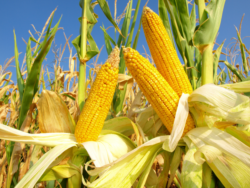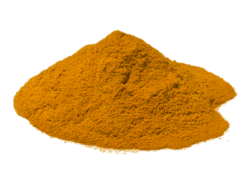Corn cultivation is a key component of the global economy, both in terms of production and consumption. It is essential for human and animal nutrition. In recent years, this crop has gained relevance not only as a food and forage source but also as a raw material for manufacturing a wide variety of products, among which corn extract stands out.
Recently, the application of this compound has gained increasing importance in the agricultural industry, particularly in enhancing productivity, sustainability, and pest control.

What is Corn Extract?
Corn extract is a fertilizer obtained through the processing of fresh corn grains, which are a source of soluble corn proteins, amino acids, carbohydrates, organic acids, mineral nutrients, and other bioactive molecules. This extract not only has highly valuable properties for agricultural use but also for the food and pharmaceutical industries.
In the agricultural sector, corn extract is primarily used in the production of fertilizers, soil additives, and phytosanitary products. Its nutrients and bioactive compounds are utilized to promote plant growth, improve soil quality, and increase crop resistance to diseases and pests.
Moreover, it serves as a more sustainable alternative to synthetic chemical products, making it an attractive option for farmers seeking more eco-friendly and organic agricultural practices.

Benefits and Applications of Corn Extract in Agriculture
Improves Soil Fertility and Structure
Corn extract has the ability to enrich the soil, fostering plant growth thanks to its macronutrient content, such as nitrogen, phosphorus, and potassium. It also provides micronutrients like iron, sulfur, and manganese, as well as amino acids and trace elements, which are crucial for plant development.
By improving soil structure, Corn Extract:
- Increases water retention capacity.
- Promotes beneficial microbial activity.
- Encourages healthier and more uniform plant growth.
As a result, higher yields and better-quality crops are achieved.

Acts as a Biological Pest and Disease Control Agent
Another significant benefit of corn extract in agriculture is its potential as a biological control agent. Through fermentation and other processes, extracts containing bioactive compounds can be obtained that help:
- Repel or eliminate pests that affect crops.
- Reduce the need for synthetic pesticides, minimizing soil and water contamination.
- Decrease the likelihood of pest resistance, a common issue with traditional chemical products.
This more natural and sustainable approach helps maintain ecological balance without compromising agricultural productivity.

Reduces Dependence on Chemical Fertilizers
Corn extract plays a key role in reducing reliance on synthetic fertilizers. These fertilizers are one of the main sources of pollution in modern agriculture, as they not only affect water and soil quality but also contribute to climate change through the emission of greenhouse gases, such as nitrous oxide.
By using Corn Extract as an organic fertilizer or as an additive to enhance the efficiency of other fertilizers, farmers can reduce the amount of chemicals applied to crops, thereby lowering their environmental impact.

Contributes to Regenerative and Sustainable Agriculture
Regenerative agriculture has gained popularity in recent years due to its environmental benefits and its focus on restoring soil health and increasing biodiversity in agricultural systems.
In this context, corn extract is a key tool, as it allows for:
- Reducing dependence on harmful chemical inputs.
- Improving soil fertility and nutrient retention.
- Restoring degraded agricultural ecosystems.
Additionally, it contributes to regenerative farming practices, which aim not only to minimize environmental damage but also to restore damaged agricultural ecosystems.
The benefits of regenerative agriculture include improved carbon sequestration in the soil, restoration of microbial biodiversity, and reduced soil erosion, all of which can positively impact long-term agricultural productivity. As an organic and natural option, corn extract fits perfectly into this model, contributing to a more sustainable agricultural cycle.
Main Benefits of Corn Extract
- Rich in organic matter and nutrients that improve soil structure and fertility, enhancing crop development.
- Easily available for plants and does not depend on microbial activity for digestion and release.
- Stimulates metabolism and nutrient transport, promoting photosynthesis.
- Widely used as a cultivation medium for the production of fermented fertilizers.
- Recommended for mixing with seaweed, humic acid, amino acids, etc.

A Sustainable Future
Corn Extract is a promising resource in modern agriculture, offering a more sustainable alternative to synthetic chemical products used in fertilization and pest control. However, it is essential to continue researching and evaluating its long-term effects to ensure that its benefits are leveraged responsibly. The incorporation of this product into agricultural practices has the potential to be a valuable tool in building a more productive and eco-friendly agricultural system, contributing to more efficient and environmentally friendly food production.

